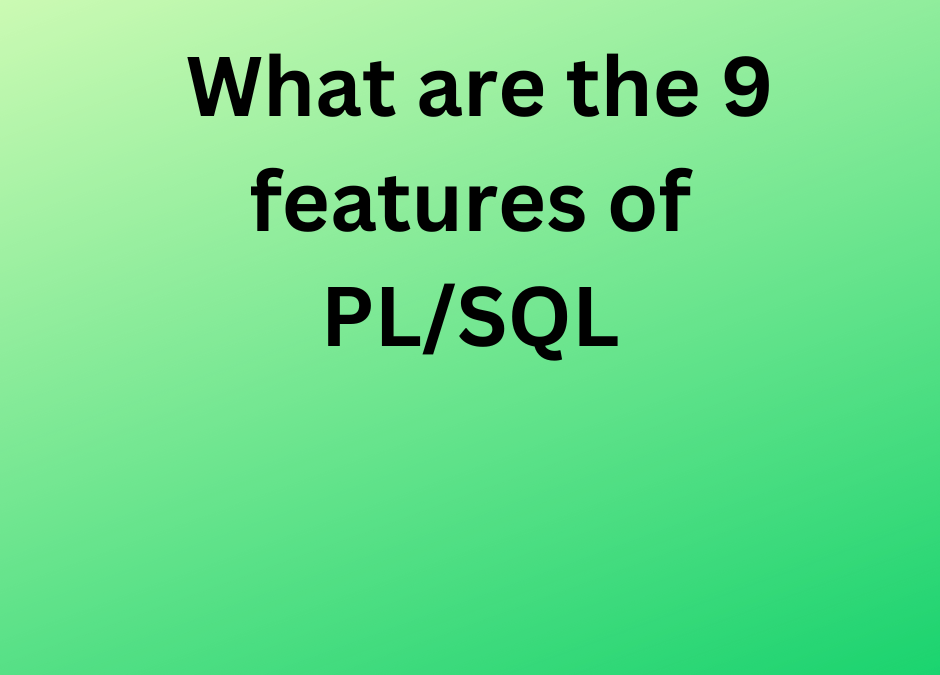PL/SQL (Procedural Language/Structured Query Language) is Oracle’s extension of SQL that provides programming capabilities in the database environment. Here are the nine main features of PL/SQL:
- Block Structure: PL/SQL code is organized into blocks. Each block consists of a declaration section (optional), an executable section, and an exception-handling section (optional). This modular structure makes it easier to manage and maintain the code.
- Variables and Constants: PL/SQL allows you to declare variables and constants to store and manipulate data within the block. Variables can be of various data types like VARCHAR2, NUMBER, DATE, etc.
- Flow Control: PL/SQL supports various control structures like IF-THEN-ELSE, CASE, FOR loops, WHILE loops, and GOTO statements, enabling you to control the flow of execution within the block.
- Procedures and Functions: You can define reusable code blocks as procedures and functions in PL/SQL. Procedures do not return a value, while functions return a value. They help in modularizing code and promoting code reusability.
- Exception Handling: PL/SQL provides an exception-handling mechanism to handle runtime errors. You can catch and handle exceptions using the EXCEPTION block, ensuring graceful handling of errors and preventing abrupt termination of the program.
- Cursors: Cursors in PL/SQL allow you to process individual rows returned by a query. They provide a way to fetch and process data from the database one row at a time, enabling better control over data retrieval and manipulation.
- Triggers: PL/SQL triggers are event-driven programs that are automatically executed in response to specific database events like INSERT, UPDATE, or DELETE on a table. They are powerful tools for enforcing business rules and maintaining data integrity.
- Packages: A package in PL/SQL is a collection of related procedures, functions, variables, and other PL/SQL constructs. It provides a way to group logically related components together, making it easier to manage and maintain code.
- Dynamic SQL: PL/SQL allows you to construct and execute SQL statements dynamically at runtime using the EXECUTE IMMEDIATE statement. This feature is useful when you need to build SQL statements based on certain conditions or requirements.
These features collectively make PL/SQL a robust and powerful language for developing database-centric applications with Oracle databases.
Oracle is a computer software and hardware company. They are the world’s second largest software maker.we are providing best oracle training in coimbatore with new updated syllabus with 15 years experience facallty.

